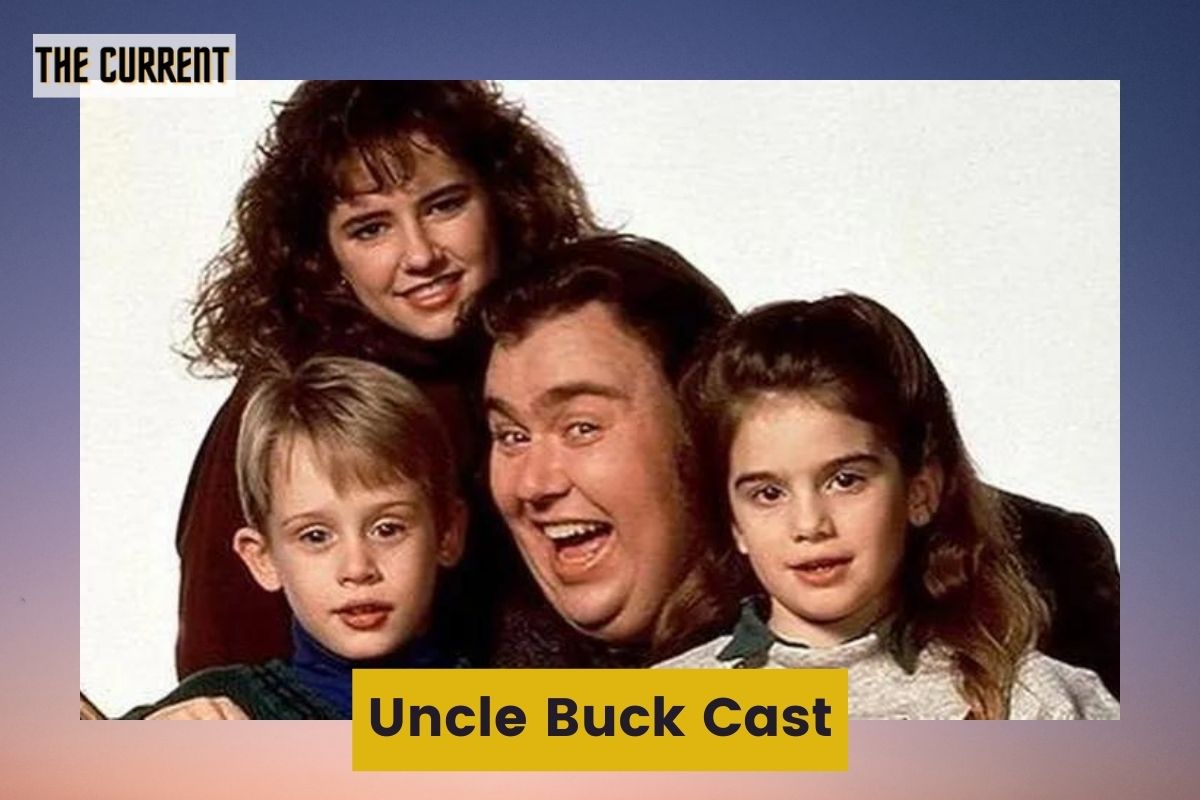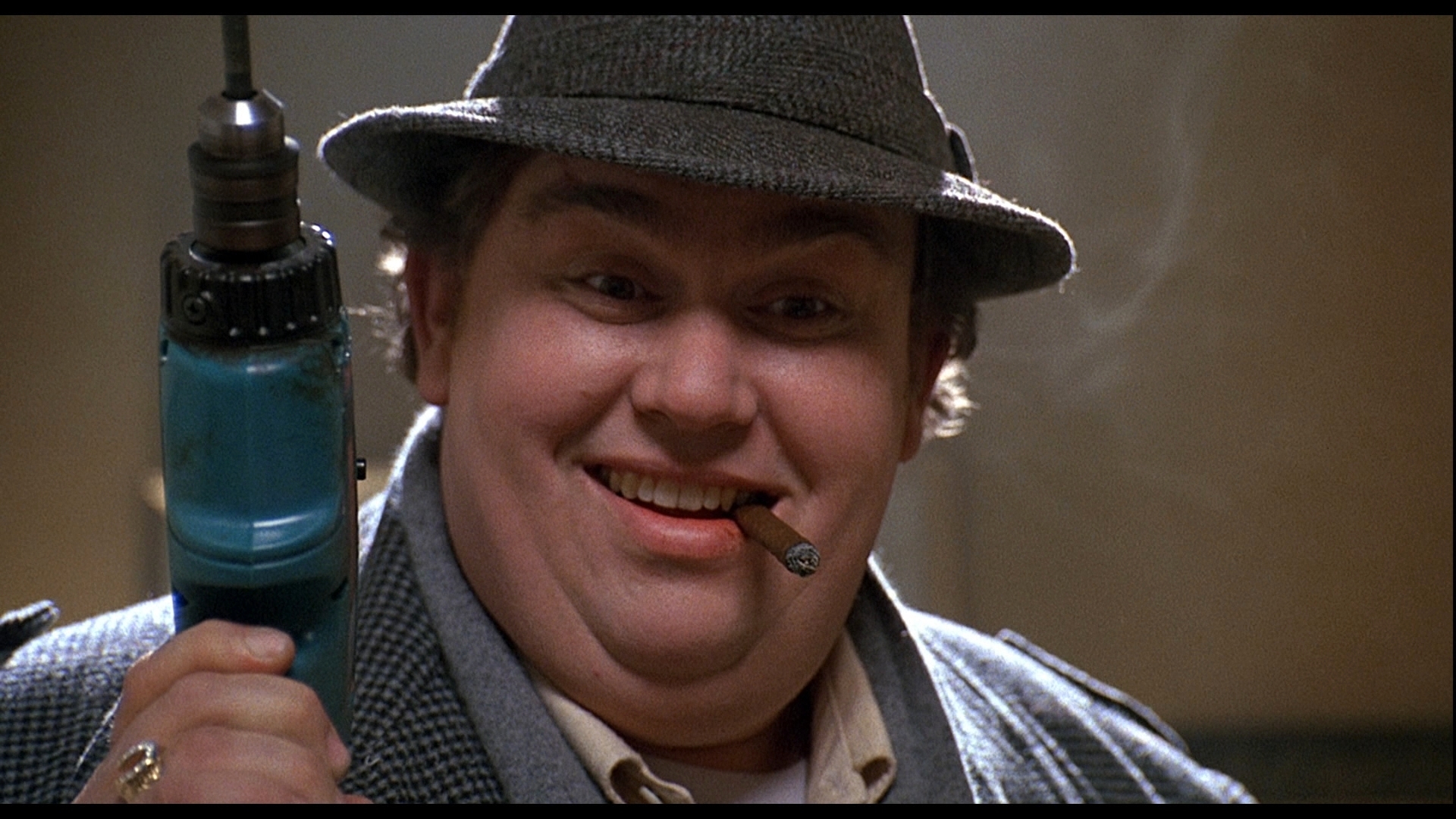Uncle Buck


John Candy’s portrayal of Uncle Buck in the 1989 film of the same name is a comedic masterpiece, capturing the heart and soul of a lovable yet flawed character. He embodies the archetype of the “unconventional hero,” a figure who, despite his flaws, ultimately provides invaluable lessons and guidance.
Uncle Buck: The Character and His Impact
Uncle Buck is a charming, albeit irresponsible, bachelor who is forced to take care of his niece and nephews when his brother and sister-in-law are called away on a sudden trip. Initially, he seems like the last person suited for the task, given his lack of parental experience and penchant for mischief. However, beneath the facade of a carefree party animal lies a deeply caring and protective individual.
Uncle Buck’s character is a complex blend of contradictions. He’s a man of simple pleasures, enjoying a good beer and a late-night poker game, yet he’s also deeply sentimental and capable of great empathy. His carefree demeanor often masks a deep-seated loneliness and longing for connection. This vulnerability becomes evident when he reveals his past struggles with responsibility and his desire for a family of his own.
- He is a charismatic and engaging character who quickly wins over the children, despite their initial reservations. His playful nature and willingness to indulge in their childish antics create a bond that transcends the typical “adult-child” dynamic.
- He offers a unique perspective on family, highlighting the importance of love and understanding over strict rules and traditional values. He teaches the children valuable life lessons through his unconventional methods, emphasizing the importance of self-reliance, resilience, and following one’s heart.
- He acts as a catalyst for personal growth, pushing the children to confront their fears and insecurities, and ultimately helping them to find their own paths in life. His presence challenges the rigid expectations of their traditional upbringing, encouraging them to embrace their individuality and pursue their passions.
Uncle Buck’s Parenting Approach
Uncle Buck’s parenting style is a stark contrast to his brother’s more traditional approach. While his brother, Bob, is a strict and disciplined parent, focused on order and conformity, Uncle Buck is more relaxed and spontaneous, emphasizing individual expression and emotional connection.
- Uncle Buck’s methods may appear chaotic and unorthodox, but they are rooted in genuine affection and a deep understanding of the children’s needs. He encourages them to express their feelings, even when those feelings are difficult or challenging, and he provides a safe space for them to be themselves.
- He teaches them valuable life lessons through his own experiences, sharing his mistakes and vulnerabilities, and demonstrating the importance of perseverance and resilience. He emphasizes the importance of following one’s passions and living a life that is true to oneself.
- He challenges the children’s assumptions about family and responsibility, demonstrating that love and connection are more important than rigid rules and expectations. He shows them that family is not defined by blood ties alone, but by the bonds of love and mutual support.
Uncle Buck’s Impact on the Children
The children’s initial skepticism towards Uncle Buck gradually transforms into admiration and affection. They learn to appreciate his unconventional approach and the genuine love he has for them.
- He helps his niece, Tia, to overcome her shyness and embrace her individuality. He encourages her to express her artistic talents and to stand up for herself, breaking free from the pressures of conforming to societal expectations.
- He teaches his nephew, Miles, the importance of responsibility and self-reliance. He challenges Miles’s preconceived notions about masculinity, encouraging him to be more sensitive and compassionate.
- He provides his nephew, Buster, with a sense of stability and security, helping him to cope with the anxieties of growing up. He encourages Buster’s curiosity and imagination, fostering his sense of wonder and adventure.
Uncle Buck’s Legacy
Uncle Buck’s character resonated with audiences, becoming an iconic figure in popular culture. His impact extends beyond the confines of the film, inspiring viewers to embrace their own imperfections and to appreciate the value of unconventional love and support.
“I’m not perfect, but I’m all I’ve got.” – Uncle Buck
This quote encapsulates the essence of Uncle Buck’s character. He is a flawed individual who, despite his shortcomings, possesses a genuine heart and a deep capacity for love. He teaches us that true family is not defined by blood ties, but by the bonds of love and mutual support.
Uncle Buck


John Hughes’s 1989 film, *Uncle Buck*, is a heartwarming comedy that follows the adventures of Buck Russell, a charming but irresponsible bachelor, as he unexpectedly becomes the guardian of his niece and nephews. The film explores themes of family, responsibility, and the importance of unconventional relationships, all while delivering laugh-out-loud moments and heartwarming emotional connections.
The Film’s Plot, Uncle buck
The film begins with Buck, a carefree bachelor who works as a loan officer, being unexpectedly thrust into the role of guardian for his niece, 12-year-old Maizy, and her two younger brothers, Miles and Bob. Their parents are forced to leave for a trip, leaving Buck to navigate the challenges of parenting three children with wildly different personalities.
The film’s central conflict arises from Buck’s lack of parenting experience and the children’s initial resistance to his unconventional methods. Maizy is a responsible and mature girl who initially resents Buck’s carefree attitude, while Miles is a rebellious and mischievous boy who tests Buck’s patience. Bob, the youngest, is a sweet and innocent child who forms a strong bond with Buck.
Through a series of comedic and heartwarming events, Buck gradually learns to connect with the children and instills valuable lessons about life, love, and responsibility. He teaches Maizy to embrace her independence and individuality, helps Miles channel his energy into positive activities, and provides Bob with the love and support he needs. By the end of the film, Buck has not only become a responsible guardian but has also formed a deep and meaningful connection with his niece and nephews.
Themes of Family, Responsibility, and Unconventional Relationships
*Uncle Buck* is a film that celebrates the power of family and the importance of unconventional relationships. The film’s central theme revolves around the idea that family is not defined by blood but by the love and support we share with one another. Buck, despite being a bachelor with a carefree lifestyle, demonstrates that he possesses the capacity for love, care, and responsibility.
The film also explores the theme of responsibility. Buck’s journey from irresponsible bachelor to responsible guardian is a testament to the transformative power of love and the importance of embracing new challenges. He learns to prioritize the needs of his niece and nephews, demonstrating that responsibility is not a burden but a privilege.
Furthermore, the film celebrates the importance of unconventional relationships. Buck’s relationship with his niece and nephews is a testament to the fact that love and support can flourish in unexpected places. He provides the children with the love and guidance they need, even though he is not their biological father. This unconventional family dynamic challenges traditional notions of family and demonstrates the power of love to overcome adversity.
Impact on Popular Culture
*Uncle Buck* has had a lasting impact on popular culture, becoming a beloved classic and influencing other films, television shows, and cultural references. The film’s success is attributed to its charming characters, heartwarming story, and memorable dialogue.
*Uncle Buck* is widely recognized for its comedic portrayal of family life, and its influence can be seen in other films that explore similar themes, such as *Mrs. Doubtfire* and *Daddy Day Care*. The film’s success also helped to launch the careers of its stars, including John Candy, who delivers a memorable performance as the titular Uncle Buck.
The film’s iconic characters and memorable scenes have also become part of popular culture, with references to *Uncle Buck* appearing in television shows, movies, and even social media. The film’s lasting impact is a testament to its universal themes and its ability to connect with audiences of all ages.
Uncle Buck: The Cultural Phenomenon

Uncle Buck, a 1989 comedy film directed by John Hughes, has endured as a cultural touchstone, captivating audiences for generations. The film’s enduring popularity stems from a unique blend of heartwarming humor, relatable characters, and a timeless exploration of family dynamics. This enduring appeal transcends age groups, making it a film that continues to resonate with viewers today.
The Film’s Appeal to Diverse Audiences
Uncle Buck’s broad appeal lies in its ability to connect with diverse audiences through its universal themes. The film explores the complexities of family relationships, showcasing the importance of love, support, and understanding. The film’s humor is accessible to all ages, ranging from slapstick comedy to witty dialogue, creating a sense of shared enjoyment. Beyond the laughter, Uncle Buck delves into the emotional depths of its characters, offering relatable experiences that resonate with viewers of all backgrounds.
Memorable Scenes and Lines
Uncle Buck is filled with memorable scenes and lines that have become part of popular culture. These moments not only enhance the film’s comedic value but also highlight the film’s emotional impact.
- The “I’m a bad influence” scene: This iconic scene, where Buck (played by John Candy) admits to being a bad influence on his nephew, is a comedic masterpiece. It encapsulates Buck’s unconventional yet endearing nature, showcasing his willingness to be honest and vulnerable. The scene’s humor lies in the contrast between Buck’s self-deprecating honesty and the genuine affection he holds for his nephew.
- The “I’m not going to college” scene: This scene, where Buck confronts his nephew’s academic aspirations, is a poignant moment of truth. It highlights the pressure young people face to conform to societal expectations, contrasting it with the importance of following one’s own path. Buck’s message of self-discovery and authenticity resonates with audiences of all ages.
- The “I’m your uncle” scene: This scene, where Buck asserts his role as a responsible adult, despite his unconventional behavior, is a powerful reminder of the importance of family. It showcases the depth of Buck’s love for his niece and nephews, emphasizing the unbreakable bonds of family.
Uncle Buck, the coolest dude I know, always throws the best parties. He’s got this killer playlist that includes everything from classic rock to modern hits, and it’s always a blast. Speaking of rock, he’s got a serious love for Van Halen, check out their legacy here , and you can bet he’ll crank up “Jump” at least once during the night.
So yeah, if you’re ever looking for a good time, Uncle Buck’s the guy to call.
Uncle Buck, the ultimate chill dude, always had a knack for juggling things. Reminds me of Tim Herlihy, the legend behind concurrent programming , who knew how to handle multiple tasks at once. Like Uncle Buck, Tim was a master of his domain, making things work smoothly even when things got hectic.
